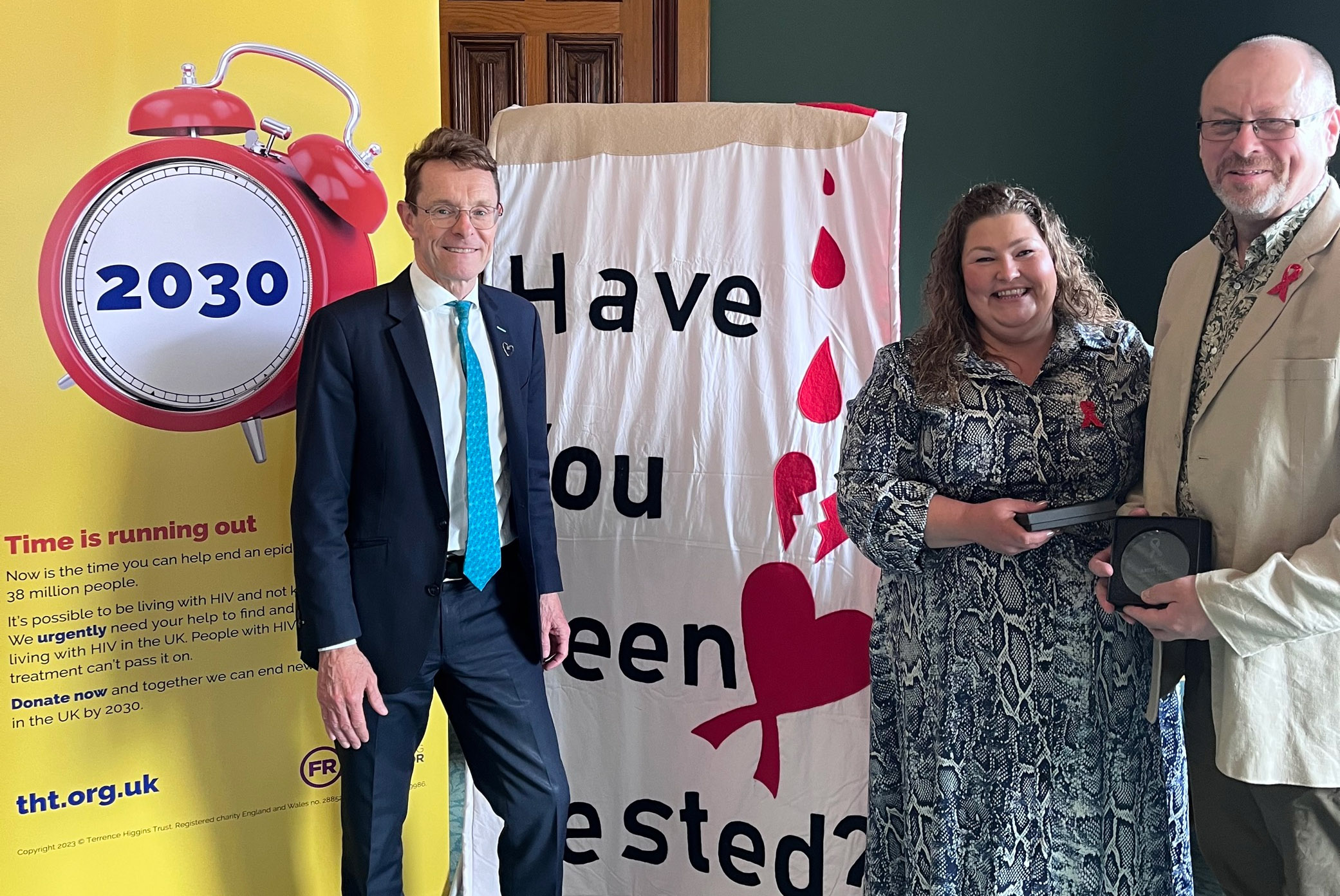
West Midlands Mayor Andy Street has called for opt-out HIV and hepatitis testing to become standard in the region’s accident and emergency (A&E) departments.
Opt-out testing is when patients who come into A&E are routinely tested for HIV and hepatitis when having other blood tests, unless they say no.
The Mayor called for funding for opt-out testing in the West Midlands at a roundtable on 25 July at Birmingham Council alongside other influential figures, including Nicola Richards MP and Richard Angell, Chief Executive of Terrence Higgins Trust. Andy Street also presented an award to HIV campaigners Garry Jones and Rachel Greaves for their work on Birmingham AIDS and HIV Memorial.
Five out of seven boroughs in the West Midlands have a ‘high’ prevalence of HIV – Wolverhampton, Coventry, Sandwell, Birmingham and Walsall – but the region is currently missing out on opt-out blood borne virus testing. It would cost just £1.6 million a year for the West Midlands’ nine hospitals in high prevalence areas to routinely test. This investment would save money for the NHS within a matter of months and relieve pressure in our A&Es, says Mayor Andy Street.
Opt-out HIV and hepatitis testing was introduced in April 2022 as part of the Government’s ambitious target to end new cases of HIV in England by 2030. In just 12 months, more than 1,998 people have been found with HIV, hepatitis B and hepatitis C as a result of opt-out testing. The initiative also found an additional 470 people who were previously diagnosed, but were not receiving life changing treatment.
This pioneering approach to testing has saved the NHS millions in care costs because those diagnosed have been able to initiate treatment. Once diagnosed and on effective medication, a person living with HIV can live a long, healthy life and can’t pass on the virus. Hepatitis C can be cleared with medication and treatment can prevent hepatitis B from causing permanent liver damage.
Funding for opt-out testing in the very highest prevalence areas – London, Brighton, Manchester and Blackpool – was allocated as part of the Government’s HIV Action Plan in 2021. In February, as a result of campaigning from MPs and council leaders across the country, Public Health Minister Neil O’Brien committed to consider funding for expanding opt-out HIV testing to the next 32 areas and 42 A&Es with a high HIV prevalence. It’s estimated that a further £18 million is needed to implement this for one year.
Scaling up this testing programme to the West Midlands as well as all areas in England with high HIV prevalence is a no-brainer, according to Terrence Higgins Trust. That’s because opt-out HIV testing in A&E is effective in diagnosing more women, heterosexuals and those of Black ethnicity who may never go to a sexual health clinic. This shows the clear role opt-out HIV testing will play in tackling health inequalities and driving us all – regardless of gender, ethnicity, age or sexuality – towards ending new HIV cases by 2030.
Andy Street, Mayor of the West Midlands, said: 'Our region recently unveiled a remarkable new addition outside the Birmingham Hippodrome – an HIV memorial commemorating those lost to AIDS-related illnesses and serving as a reminder of those living with HIV today. Sadly HIV still affects local people living here in the place we all call home and we know opt-out HIV testing can save and change lives - particularly when there are an estimated 3,000 undiagnosed people living outside the capital. That’s why I welcome this campaign and support efforts to improve health outcomes.'
Richard Angell, Chief Executive at Terrence Higgins Trust, said: 'The expansion of A&E HIV and hepatitis testing in areas like the West Midlands is essential to reaching our life-changing goal of ending new HIV cases by 2030. The overwhelming success of opt-out in its first year proves the Government needs to expand the programme to areas with high HIV prevalence to find people living with undiagnosed HIV and hepatitis who are a simple test away from knowing their status and life-changing treatment.
'Had the Government’s own guidance been followed and it been expanded to hospitals in the next tier of HIV prevalence when launched last April, 500 additional people would know their status and now be on treatment. They cannot afford for there to be further delay – every day that passes is a missed opportunity. The Government must fund opt-out HIV testing for the West Midlands and all areas of England with high HIV prevalence now.'


